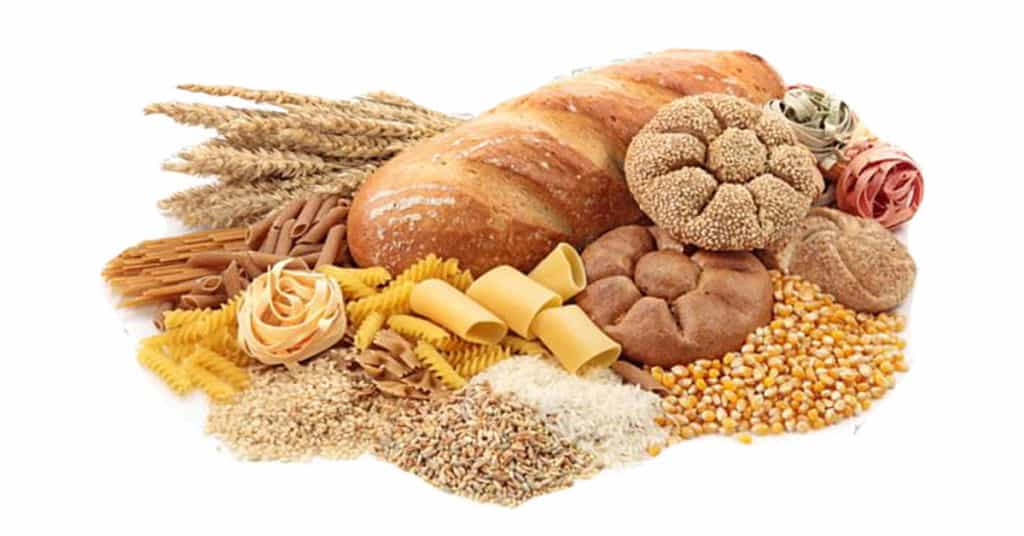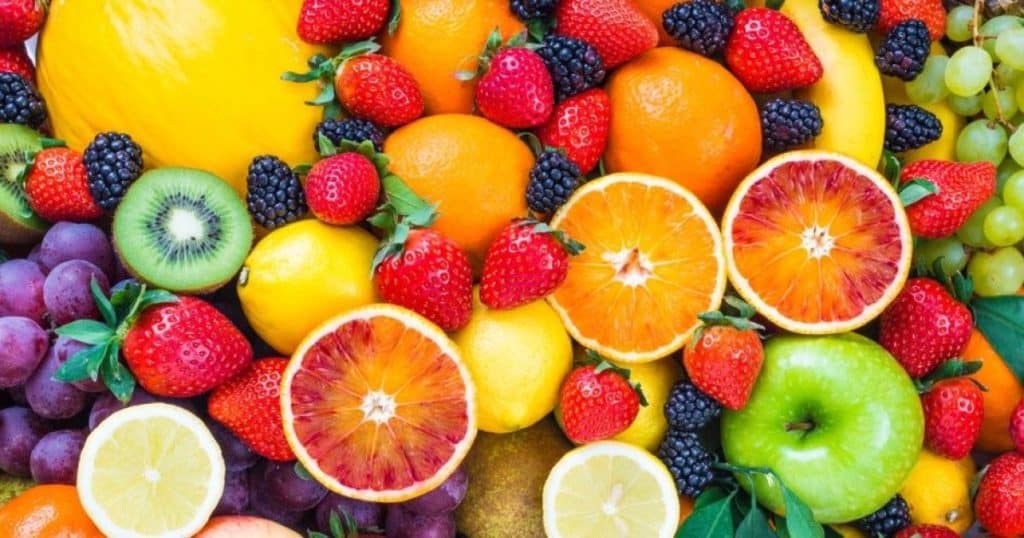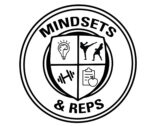
Carbohydrates are not only a primary energy source for resistance training workouts, they also play a critical role in muscle fullness and appearance. Competitive bodybuilders often cite a lack of carbs as a reason why they look “flat” on stage when they perform poorly.
Carbohydrates are stored in muscle in the form of glycogen. This serves two purposes. Glycogen storage increases the volume of the muscle cell, making it larger. At its core, a carbohydrate is simply a 6 carbon molecule attached to water, hence the name carbohydrate. So with glycogen storage in essence comes water as well. This is a good thing since muscle is about 70-80% water. A hydrated muscle not only looks better, it performs better as well.
Glycogen also serves as a fuel source for that particular muscle. If you are performing a leg extension you are likely using carbohydrates stored in the quadriceps muscle being worked. This is why carbohydrates are so beneficial to intense exercise; the fuel is right there in the muscle ready to be burned.
Carbohydrates can also be stored in the liver as glycogen, similar to the way it is stored in muscle. The liver has a smaller capacity for this glycogen storage, only about 100g compared to 400g from muscle (obviously depending on an individual’s level of muscle mass). However, it’s important to note that different carbohydrate sources favor one storage over or the other.
Fructose tends to be stored in the liver while glucose tends to be stored in muscle. This doesn’t make fructose bad, as liver glycogen may be called upon in certain situations like very long training sessions or periods of caloric restriction (dieting). However, excess fructose tends to be converted to triglycerides, a.k.a fat. For this reason, glucose is the more optimal carbohydrate for building muscle.
Simple or Complex Carbs
A major flaw in nutrition “discussion” is the obsession with labeling foods good or bad. But it is rare that a food or food group is unequivocally good or bad across the board. The context is what determines what is optimal for the individual. The same is true with carbohydrates.
Simple carbs digest and assimilate in the body very quickly while complex carbs take longer. Making the proper choice at the right time can lead to better muscle building in the long run. Typically you’d want to choose complex carbohydrates pre workout, so that there is a sustained release of energy during your time at the gym.
Complex carbs are also good throughout the day, when a spike in blood sugar and energy is not necessary. That spike could subsequently lead to lethargy and cravings, which may result in straying from the diet plan altogether. You’re better served with sustained energy from a carb source that takes longer to break down.
Simple carbs or simple sugars are typically best post workout, as the rapid digestion and absorption of glucose will start the recovery process for the next workout. This is especially crucial for individuals that work out multiple times per day.
It’s important to note that the term simple or complex is based upon eating the food by itself. This rarely happens as most foods are eaten with others as part of a meal. Fats and fiber slow the digestion of simple carbs.
You may be thinking: it’s been established that the anabolic window is not simply a one hour period post workout. It spans 24+ hours, so we don’t need to necessarily get nutrients in immediately. This is true; however it’s important to note the difference between needing to do something and being optimal.
Just because you don’t need to slam a protein shake with dextrose post workout doesn’t mean it’s wrong to do so. Many experts advocate the importance of nutrient timing around workouts, as do I. This is particularly important as you progress and become an intermediate or advanced lifter. These little details start to matter much more. In the end, having a fast digesting carb source with protein post workout is always a good thing no matter what level you’re at.
Food Sources
In addition to the type of carbohydrates found in a specific food, digestibility is a major factor when choosing what to include in your diet. This obviously varies from person to person, but the foods listed below generally digest well for most people. Omitted are common sources of grains and dairy, but please don’t let that deter you from consuming them if you have no issue with digestion.
Sweet Potatoes
Sweet potatoes are a versatile carb source that can be used when building muscle or cutting. They rank as one of the best foods in terms of satiety, or the feeling of being full after eating. In addition they are micronutrient dense unlike other carbohydrate rich foods, containing ample amounts of Vitamin A and potassium.
Baked potatoes are nutrient dense as well. They’re often looked at as a lesser option compared to sweet potatoes, but they contain slightly more potassium per serving. The only thing lacking in comparison to the sweet potato is Vitamin A, but both are still great options.
Sweet potatoes digest well for most people. Some even consume the skin for additional fiber. They are predominately made up of starch, which is 100% glucose. As mentioned, this is favorable for muscle glycogen storage.
Jasmine Rice
Brown rice has the reputation of being the healthiest rice you can eat. However, the difference in micronutrient density between brown rice and other rice is negligible. In addition, many people don’t digest brown rice very well. What good is brown rice if it sits like a stone in your stomach?
Jasmine rice on the other hand digests very easily. You can even tell by the texture; it’s a softer grain after cooking than others. This is why I recommend it to most of my clients.
Jasmine rice is a great option post workout as it digests very quickly. Chicken, rice, and broccoli has been a standard muscle building meal for years. And with good reason; it’s high in protein and easy to digest. Jasmine rice in particular is more calorie dense than others. This is beneficial for people looking to pack on muscle but may not have a big appetite.
This is a good example of why it’s important to take context into consideration when choosing foods. If you’re cutting and your daily calorie intake is low, you want to choose foods that are less calorie dense. You want a higher volume of food with fewer calories so you won’t be hungry throughout the day. In this situation you’d probably go with a large potato rather than half a cup of jasmine rice, even though the carbohydrate content is about the same.

Fruits
Fruit obviously encompasses a bunch of different options. Fruits are the one food on this list that contain a decent amount of fructose. But as we mentioned earlier, fructose isn’t necessarily a bad thing. Fructose is beneficial in restoring liver glycogen. With that being said, the fructose content of fruits is often overblown anyway. An apple, which is considered to have one of the highest fructose contents of any fruit, is still less than 50% fructose overall.
There is also a misconception that fruits are extremely high in sugar overall. This obviously depends on the fruit and the serving size. But let’s consider a tropical fruit like a mango, which most would deem to be a fruit high in sugar. A large mango has about 30g of carbs, 28 of which is from sugar. 30 grams of carbohydrates is 120 calories. 120 calories in the grand scheme of say, a 2500 calorie diet, is less than 5% of your daily calories.
Now take a fruit like strawberries. Strawberries are sweet and taste great, so you’d assume that they’d be high in sugar. But 5 ounces of strawberries, which is basically a full bowl, is only 7g of sugar. Also you’re getting vitamins, minerals, phytonutrients, and antioxidants in each serving.
In addition, these are naturally occurring sugars, unlike added sugars which are found in packaged junk food. This isn’t high fructose corn syrup we’re talking about here. A mango also has about 4 grams of fiber, which mitigates the blood sugar response.
Fruits have high water content, which is helpful for muscle hydration and performance. We often don’t consider foods when it comes to hydration, only how much water to drink. But many fruits and vegetables naturally contain a lot of water. A watermelon is about 90% water, hence the name.
Fruits are convenient and digest well for most people. If you want a quick energy source prior to a workout, it’s a lot easier to grab a banana than it is to heat up some rice.
Oats
Oats in of themselves are gluten free, but are often produced in a facility with gluten containing foods. As a result, due to potential cross contamination, they cannot technically be considered gluten free.
Oats are a slower digesting carb and a good source of both soluble and insoluble fiber. This makes it a good pre workout carbohydrate or something to eat throughout the day. The carbohydrates in oats are predominately glucose.
Oats are a versatile food. They can be mixed with nut butters and fibrous fruits to slow down digestion even further. Or you could opt for instant packets, which spike blood sugar more quickly since it is processed. Use context when deciding what’s best for your situation.
Pasta
My clients are amazed when I put pasta in their diets, as if I was putting Snickers bars in there. So long as they are not gluten intolerant, pasta is a great carb source. It digests very easily and is nearly all starch, meaning it breaks down directly into glucose.
Pasta is more calorically dense than other carb sources. This can be a positive or negative depending on the situation. For someone on a bulk, pasta is a great source of easy, muscle friendly calories. Someone cutting would not have that allowance of additional calories, and may have a hard time fitting pasta in.
Nowadays you’ll find lentil pasta as well, which is an easy way to get some extra protein in the diet.
| Food | Serving Size | Grams of Carbs |
| Sweet Potato | 8 oz. | 45 |
| Jasmine Rice | 1/3 Cup Dry | 77 |
| Banana | 4 oz. | 25 |
| Pineapple | 4 oz. | 15 |
| Oats | 1/2 Cup Dry | 27 |
| Rigatoni Pasta | 2 oz. Dry | 41 |
Carbohydrate Powder
Some people may choose to supplement with carbohydrate powder pre or intra workout. This is a good option for people who hate to train with food in their stomach, but still want to optimize their pre workout nutrition.
The best quality carbohydrate supplement is cyclic dextrin, but it can be expensive and hard to find. The reason it is rated so highly is because of its high molecular weight and low osmolality. This means that it exits the stomach and into the blood very quickly, thus avoiding cramps.
If you don’t want to pay up for cyclic dextrin, the best bang for your buck would just be to find a product made up of dextrose. Dextrose is 100% glucose.
